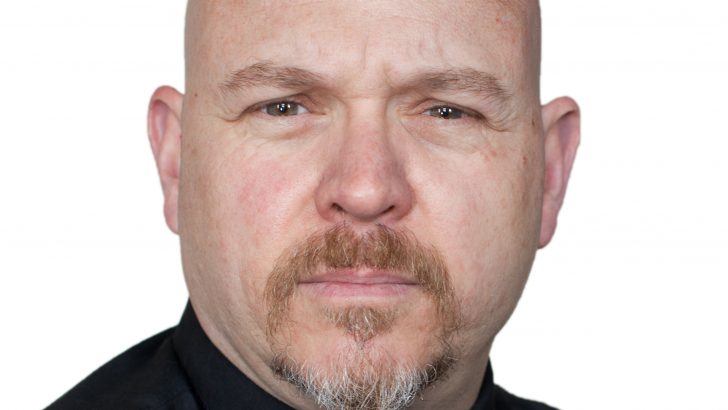Is Scotland unwilling to face its sectarianism, asks Paul Keenan
Next week, the Scottish parliament will vote on the proposed offensive behaviour at football and threatening communications (Scotland) bill, following a month-long debate on the best legislative response to the issue of sectarianism in the country.
Backed by the majority Scottish National Party, which has been able to use this majority to force the bill’s progress, the well-intentioned piece of law has met with resistance along the way — for its alleged narrow focus — and has sparked an unforeseen conflict beyond the troublemakers in the terraces it aims to tackle.
That conflict erupted last weekend when Nil by Mouth, a charity ”existing for the sole purpose of achieving a society free from sectarianism where cultural and religious diversity is respected and celebrated by everyone” suggested to government that twinning schools and developing shared college campuses would be significant moves towards stifling the perceived roots of sectarianism.
The suggestion, contained in the charity’s own 13-step plan on sectarianism, was immediately attacked by the Scottish Catholic Education Service (SCES) for its implicit hinting at apartheid in the educational system, such as has been witnessed in recent weeks in Northern Ireland.
Criticising ”tokenistic gestures” and ”artificial twinning” as neither ”helpful” nor ”constructive”, Michael McGrath, education director with SCES, stressed to Scottish media that ”the problem of sectarianism is rooted in communities, not in schools”.
Dismissing the Nil by Mouth plan as ”a sop to officials so they think something is going on”, Mr McGrath invited the charity to examine ”the good work arising naturally from within schools” in respect of cross-community relations (presumably because the charity had neglected to consult the SCES on its proposal in the first instance).
Prejudice
While the issue does not dismiss the entire canon of work undertaken by Nil by Mouth in tackling sectarianism — the charity was founded in 1999 as a response to the sectarian murder of football fan Mark Scott — its timing was, at best, unfortunate.
(Pictured: Rangers football fans during a clash with Celtic.)
It was only in September that the Catholic Church was critical of Holyrood’s dismissal of an academic report into anti-Catholic bias within the judicial system, seeing in it further evidence of an inherent prejudice against the country’s minority faith (as an aside, Catholics make up 13 per cent of Scotland’s population, but 26pc of its prison numbers).
More sinister still, figures released earlier this year reveal that sectarian crimes are on the rise in Scotland, up by 10pc on the previous year and with a staggering 58pc directed at Catholics as against 37pc on Protestants.
Broken down, the government figures detail 693 charges aggravated by religious prejudice in 2010/2011 — the highest in four years.
Such a reality was very much in the mind of Bishop Philip Tartaglia of Paisley when, in early October, he entered the debate on the football bill.
Writing to First Minister Alex Salmond (Pictured below), Bishop Tartaglia pointed out: ”Official figures made available some years ago show conclusively sectarian criminality is made up predominantly of acts of intolerance and hostility towards Catholics.”
Should this not be enough to prompt his reader, he added: ”We know that several years’ worth of subsequent data on sectarian offences remains locked in the vaults of the Crown Office. It is disappointing that, despite repeated requests from the Catholic Church [since 2006] and from others for this data to be made public, and despite assurances from you and your government that it would be, your officials have decided to shelve plans to release that information.”
This, the bishop concluded, indicated the heart of the problem that needed to be addressed.
”Instead,” he concluded, ”what we appear to have is an indecently hasty desire to enact legislation to deal with a problem, the core of which your government steadfastly refuses to name or measure.”
Engagement
Though Churchman and politician subsequently met amicably and changes to the bill were secured in November so as not to affect freedom of expression, especially in the religious sphere, news last weekend that the Scottish Crown Office has destroyed the information referred to by Bishop Tartaglia takes the edge off the little victory.
In relation to the files’ destruction, one unnamed ‘insider’ quoted by the Scottish Law Reporter revealed that ”the data showed the majority of sectarian crimes were against Roman Catholics around Orange Order marches. This would be too shocking for the [Scottish National Party] as they would be seen to be bringing in new legislation to punish Roman Catholics when in fact they should be bringing in legislation to control Orange Order parades.”
In recent days, Scotland’s Labour Party, which has opposed the football bill, offered its own solution to the broader problem of sectarianism, in the shape of an 11-point plan which, it says, needs no change in legislation to make it effective.
Schools are again mentioned, but, surely of comfort to the SCES, the Labour plan suggests a fuller engagement with how anti-sectarianism is taught in schools as opposed to their realignment (or narrow focus on football terraces).
All accept that the forthcoming offensive behaviour at football and threatening communications (Scotland) bill is not in itself meant to be a panacea to Scotland’s cross community woes. Sadly, in the absence of honest reflection on the true nature of Scotland’s sectarianism by some, this is the only thing the sides can agree on.



